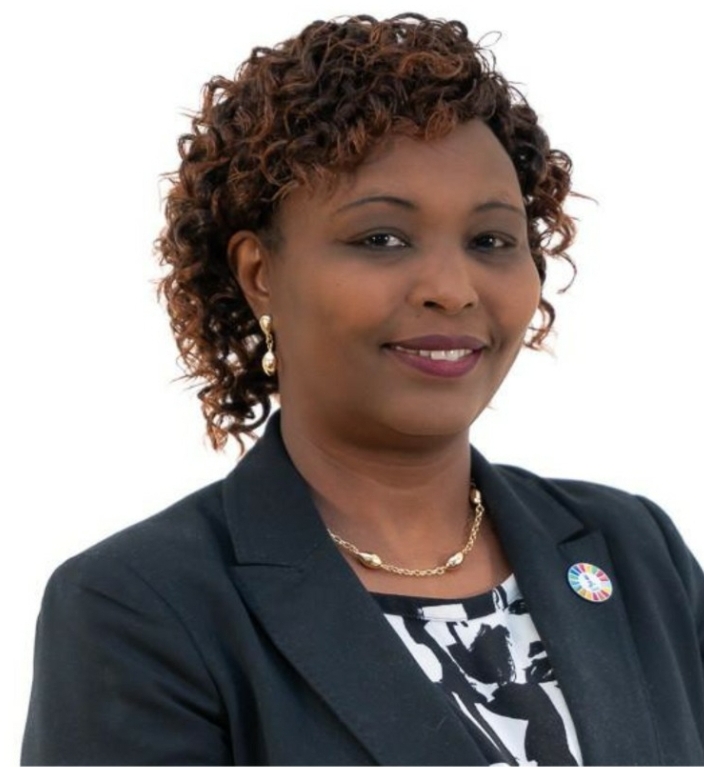
IFAD URGES SIERRA LEONE’S RURAL FINANCE PROGRAMME TO FOCUS ON THE FUTURE
The Country Director of the International Fund for Agricultural Development (IFAD) for Sierra Leone, Madam Pascaline Barankeba, has called on the team implementing the Rural Finance and Community Improvement Programme Phase II (RFCIP2) to focus more deliberately on the programme’s long-term future.
Speaking in Bo at the opening of a ten-day IFAD implementation support mission, Madam Barankeba emphasized the importance of sustainability, noting that while individual projects may come to an end, the broader programme is designed to endure.
“It is time for the programme to focus on the future. It is no longer a baby. It is high time you started thinking about where you are heading next,” she said.
She also commended the best-performing Rural Financial Institutions (RFIs) for their progress and urged the team to facilitate discussions on the challenges facing underperforming or distressed RFIs, in order to identify root causes and develop solutions.
In response, the Programme Coordinator of RFCIP2, Mr. Mohamed Tejan-Kella, expressed appreciation to IFAD and the Ministry of Agriculture and Food Security (MAFS) for their continued support. He reaffirmed that improving access to rural finance remains a central strategy in the fight against poverty among rural communities in Sierra Leone as well as to enhance national food security.
“We want this project to continue being one of the best in the West and Central Africa, we therefore urge the RFIs to take full ownership of their responsibilities to make this happen,” Mr. Tejan-Kella affirmed.
The MAFS is changing the dynamics by actively engaging the private sector to realize its vision to ‘Feed Salone.’ This is clearly demonstrated through the establishment of the Agribusiness Directorate”.
Commenting on the mission, Mr. Nelson Salia-Konneh, Managing Director of the Apex Bank Sierra Leone Limited, described the June 2025 Support Mission as one of the most effective IFAD missions he has witnessed.
“Although there have been several IFAD missions in Sierra Leone, this one has been particularly remarkable,” he noted.
The IFAD RFCIP2 Implementation Support Mission aimed to assess progress made since the last mission, particularly in implementing key agreements and recommendations from the previous RFCIP2 supervision mission.
The mission also sought to provide any necessary capacity support to the National Programme Coordination Unit (NPCU).
Upon arrival in Freetown, the mission team on 3 June 2025 paid courtesy calls to the Ministry of Agriculture and Food Security (MAFS), the Ministry of Finance (MoF), and the Bank of Sierra Leone (BSL), before proceeding to Bo, where the RFCIP2 NPCU is based.
In Bo, the mission engaged with representatives of the RFIs — Financial Services Associations (FSAs) and Community Banks (CBs) — including holding in-depth discussions with the most distressed RFIs to gain a clearer understanding of the challenges they face.
The mission concluded with high-level wrap-up sessions on Thursday, 12 June 2025, at the Ministry of Agriculture and Food Security, Bank of Sierra Leone and the Ministry of Finance respectively.
During these sessions, the mission team presented its key findings and recommendations to MAFS, BSL and MoF officials for their consideration and future actions.
Addressing the Minister of Agriculture and Food Security on the outcome of its recent mission, the IFAD Country Director for Sierra Leone Madam Pascaline Barankeba, reported notable progress across the Rural Finance and Community Improvement Programme (RFCIP2) when compared to the last supervision mission.
She expressed satisfaction with the renewed commitment and energy demonstrated by staff of the Rural Financial Institutions (RFIs), particularly their determination to rebound and strengthen operations. However, she emphasized the urgent need for the Apex Bank to intensify loan recovery efforts, noting that improved capacity building is essential for sustained success.
In his response, the Minister of Agriculture and Food Security, Hon. Dr. Henry Musa Kpaka, welcomed the findings, describing the outcomes as “very good feedback all around.” He assured the IFAD team that the Ministry will take the mission’s observations seriously. “As a support mission, we value the insights provided and will act on them,” he affirmed.
At the Bank of Sierra Leone, Madam Barankeba informed the Governor that this was the first time IFAD had held an exclusive wrap-up session with the Central Bank. She highlighted that this engagement reflects IFAD’s recognition of the Bank’s critical role in the successful execution of the rural finance programme.
While at the Ministry of Finance, the Minister of Finance, Sheku Ahmed Fantamadi Bangura commended the Implementing team of the RFCIP II for the progress made, urging them of telling their stories for others to emulate. He described the RFIs as the fundamental anchor for financial inclusion in the country. “The government should own these entities and see it as a conduit to reach not only the agricultural sector but other Small and Medium Enterprises (SMEs)”, he suggested.
The RFCIP2 has already established 76 functional Rural Finance Institutions (including 17 Community Banks and 59 Financial Services Associations) across Sierra Leone, impacting over 256,000 households with access to finance in hard to reach rural communities.